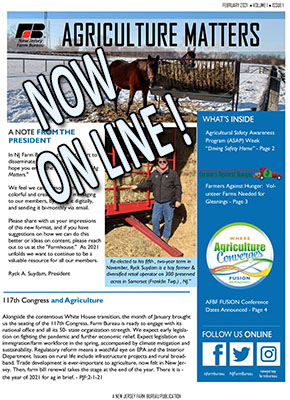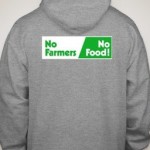Cream Ridge, NJ – New Jersey’s wine industry had a $323 million economic impact on the state in 2016, an increase of 39.9% from the $231 million economic impact reported in 2011, according to a new study released by the Garden State Wine Growers Association (GSWGA) funded from a Wine Industry Council Grant, and completed by accounting and consulting firm Frank, Rimerman + Co.
Wine production increased by 73.1% from 405,954 gallons in 2011 to 702,671 in 2016. The number of wineries in the state increased from 38 to 50, and wine, grapes and related industries accounted for 1,979 jobs (up 35.4% from 1,462 in 2011) according to the study with the majority of the jobs being in the actual wineries and vineyards with an associated payroll of $85.57 million. Grape bearing acres also grew 23/3% from 1,283 to 1,582 acres.
The New Jersey wine and grape industry also generates significant tax dollars, benefiting federal, state and local governments. New Jersey’s wine, grape and allied industries paid $23.24 million in federal taxes and $17.73 million in state and local taxes in 2016, including roughly $2.35 million in total excise taxes.
The study estimates the retail value of New Jersey wine sold at about $29.53 million in 2016, up from $21.46 million in 2011. The majority of New Jersey wineries are small, producing less than 5,000 cases a year, and a majority of them sell their wine directly to consumers through winery tasting rooms.
“This economic impact study clearly shows the positive role our wineries and wine-related industries are having on the state’s economy not only from jobs and tax revenue, but also from helping to boost tourism in the state,” said Valerie Tishuk, Chair of the Garden State Wine Growers Association.
Wine is certainly making an impact not only in New Jersey but across the country as well. In September of 2017, WineAmerica, the National Association of American Wineries, unveiled a national impact study pegged the wine industry’s total benefit to the U.S. economy at $219.9 billion in 2017.
According to the GSWGA study, tourism continues to be a material factor in the New Jersey wine and grape industry’s overall impact on the broader state economy. A survey of New Jersey wineries estimates that 108,813 tourists visited New Jersey wineries in 2016. Supporting these winery visitors is a diverse labor force of approximately 357 employees with total wages of approximately $12.9 million. The continued increase of tourist visits over the past several years can be attributed to the increased number of New Jersey wineries and continued improvement in wine quality, providing more destinations and opportunities for visitors to experience New Jersey wine country.
“While these figures are encouraging, they also show that there is a lot more work to be done in making our wine industry a focal point of beverage tourism in New Jersey,” noted Tom Cosentino, Executive Director of the GSWGA.
As outlined in the study, despite the increase in winery-related visitors from 2011, total tourism revenue industry wide declined from $20.10 million in 2011 to $19.99 million in 2016. This is directly attributable to lower average spending per visitor statewide across all tourism sectors as well as fewer number of wineries visited per visit. Specifically, tourism spending per visitor has decreased from $209.66 in 2011 to $183.67 in 2016, a drop of approximately 12.4%.
“We are confident that the new administration will see the value of using the wine industry to help support and promote tourism in New Jersey and look forward to once again working in a bipartisan manner with our legislature to create bills that will continue to help us grow,” noted Tishuk.
The GSWGA is a coalition of over 50 wineries, grape growers and vineyard owners across New Jersey, dedicated to raising the quality and awareness of the New Jersey wine industry. For more information visit: www.newjerseywines.com.








